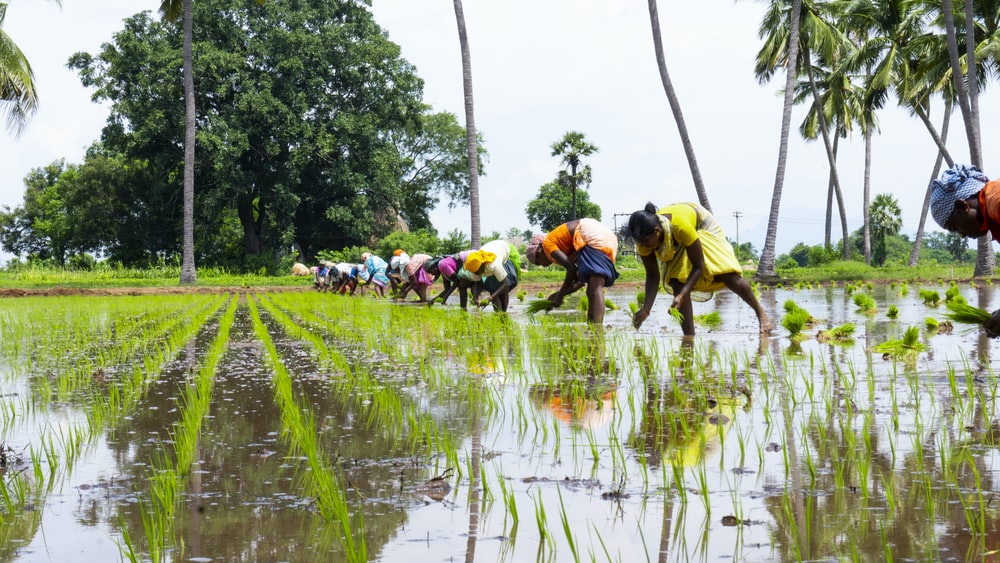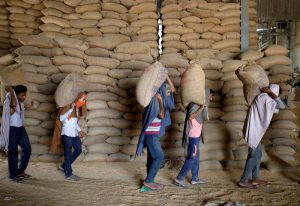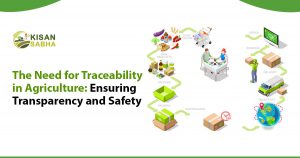Their participation in natural farming will not just ensure the sustaining and scaling of the practice, but also promote economic well-being, equity and support the nation’s sustainable development agenda.
Tribal women at Kharegoan village in Thane. a social security blanket is essential to ensure that women have a robust support system to juggle household responsibilities, child-rearing, and financial burdens while also managing work.
As per the 2011 census, about 33.7% of rural males migrate for employment and better economic opportunities. The increasing migration of rural men has led to the feminisation of the agriculture sector, with the participation of women in agriculture and allied activities becoming more significant. To address this changing scenario, it becomes essential to keep women at the centre of India’s policy initiative.
Women have historically been involved in labour-intensive agricultural activities. They have played a key role in biodiversity management and sustainable agriculture through ecological practises, such as conserving traditional seeds, preparing natural fertiliser, and using diverse natural resources to meet daily household needs.
Today, the government is promoting natural farming in India. The agriculture ministry has announced a proposed scheme with an outlay of ₹25,000 crore to natural agriculture after the Prime Minister highlighted its importance at the National Conclave on Natural Farming, organised by the Gujarat government last December. Chemical-free farming was also emphasised in the Union Budget 2022-23.
Women’s age-old knowledge and traditional natural farming practices make them a crucial part of promoting this model and in achieving the national target of doubling farmers’ incomes.

Owning a farm is essential for women
Women manage work at both household and farm levels, including maintaining livestock, and selling milk and other produce in the market. But, unfortunately, they continue to be marginalised in terms of land ownership. According to the agricultural census (2015-16), of the 73.2% of rural women engaged in farming, only 12.8% own land.
It is essential for women to own the farm, as it improves their access to government entitlements, financial resources, and decision-making power within the household. Studies also suggest that when women own land, they spend more of their earnings on children’s education and nutrition than men. In 2012, agricultural scientist and then Rajya Sabha member, MS Swaminathan, introduced The Women Farmers’ Entitlements Bill, 2011, to identify women as farmers, and not cultivators. Unfortunately, this bill lapsed in April 2013 due to a lack of support and interest. Today, there continues to be a growing need to identify women as farmers, with farm ownership that would in turn make them eligible for schemes and benefits, and not mere cultivators who work on farms.
Recognise women’s contribution
The Andhra Pradesh Community-managed Natural Farming (APCNF) sets an example that several states can follow. It is based on the premise that since women mostly cook for their families, they understand the importance of natural products to nurture and nourish their children. As a result, women are likely to adopt natural farming sooner than men. APCNF has engaged women in social mobilisation, collective action, community learning and community marketing by utilising the existing institutional platform of women’s Self-Help Groups (SHGs), which are instrumental in scaling, sustaining and deepening the natural farming programme. This movement has also helped women improve their household nutrition and incomes and empowered them to create their agency in their villages.
Such inclusive approaches in agricultural policy implementation are required to recognise the presence and contribution of women in the sector. In addition, better extension services and training programmes aimed at women can address gender disparity.
This would help boost women’s incomes and their involvement in decision-making. It would also positively impact the health and nutritional status of the family — studies have indicated that there is a direct correlation between women’s control over agricultural resources as a primary producer and the socio-economic characteristics of their household.
Trainings must aim at women
The National Mission on Sustainable Agriculture (NMSA), the Paramparagat Krishi Vikas Yojana (PKVY), and sub-scheme Bharatiya Prakritik Krishi Paddhati (BPKP) are already underway in several states, and the government has been pushing for natural farming through several training and awareness programme. However, most of the schemes today lack focus on enhancing women’s participation and recognition of their role in the agricultural system.
For natural farming initiatives to gain precedence, policymakers should put focus on women’s participation, by formulating targeted training and awareness programmes. In addition, a social security blanket is essential to ensure that women have a robust support system to juggle household responsibilities, child-rearing, and financial burdens while also managing work.
Today, work is underway to bring areas on the banks of the Ganga under natural farming through a comprehensive action plan. Also, a committee has been formed to include courses on natural farming in various universities. As an example of mainstreaming women’s role in India’s agriculture sector, such upcoming projects and action plans should include women in its planning stages. Women are more aware of their village’s geography and land topography and can introduce an equity and inclusivity lens to planning. In addition, developing more case studies of women’s participation in natural farming – like the APCNF initiative – will help bring insight and nuance to training modules.
Natural farming uses methods based on natural or ecological processes through natural inputs. It is a promising tool to minimise farmers’ dependence on purchased inputs while increasing their incomes, delivering ecological benefits, and maintaining nutritional food security. Women have applied agro-ecological approaches that focus on local seeds and diverse crop varieties where they possess better acumen. Their participation in natural farming will ensure the practice’s sustaining and scaling, promote economic well-being and equity, and support the nation’s sustainable development agenda.
source code:-https://www.hindustantimes.com/opinion/the-natural-farming-policy-should-recognise-women-s-new-role-101659335051095.html




